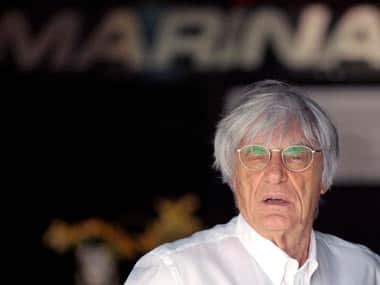Not for the first time in Formula One history, the drivers’ championship will be decided in the last race of the season.  For the past few years, Red Bull and Sebastian Vettel’s dominance left the fans with a very predictable outcome halfway through the season itself. When he won his fourth consecutive drivers title last year, Vettel was six years younger than his compatriot Michael Schumacher was when he became a four-time champion in 2001. Gone are the days of the frantic nervous energy of the fans before a race, the adrenaline pumping over-taking manoeuvres. Now the cars sound dreadful, the racing is painfully slumberous and the spectacle completely underwhelming. This has resulted in a drastic drop in 50 million drop in viewership of the sport in 2013 and F1’s top man Bernie Ecclestone in recent interviews he claimed the sport did not need younger fans since they could not afford anything the sport is promoting. So to combat the stagnation facing formula one viewership, Ecclestone came up with the double points plan for the last race that was supported and passed unanimously by all the teams - making sure that unlike the previous years, the title race would go down to the wire. Pundits and fans have criticised this move calling it unnecessary and commercial. The declining sport now has to face the possibility of a besmirched drivers champion all because of an ill-conceived, unwanted and unnecessary strategy created by Ecclestone. We would never have seen Alberto Ascari crowned as champion in 1953 or the explosive Lauda-Prost battle in the 1984 season would have had a drastically different outcome. Prost started the last race on the front row, but was beaten to the first corner by Nigel Mansell and Keke Rosberg. He came back to lead the race by the start of the 10th lap and Lauda, struggling with a broken turbo, was down in ninth. But as the race went on, the Austrian veteran Lauda began to climb up the grid, moving to third. Mansell was stuck in between the two until failing brakes caused him to spin twice, raising Lauda to second. He remained there until the end, with Prost winning his seventh race of the year and Lauda winning the championship by half a point. Keeping score in the 50’s was not easy, read more on the half points system here. If double points had been implemented then, instead of Nikki Lauda winning by half a point, Alain Prost would have taken home the title by 80.5 points to Lauda’s 78. This year’s contenders now face a battle to the end, the title could go to either one of them. Lewis Hamilton sees the title slipping through his fingers, the Brit is so close but still so far. He has won 10 races this season to Nico’s four. He would have been a definite shoo in for champion had it not been for double points. As they stand: Hamilton leads his German team-mate by 17 points, but with 50 points up for grabs, the race can go either way. So in a sense, Ecclestone’s gamble has paid off. Had there been no double points the drivers’ title would have been clinched already and in his own way, he has attracted a late season interest in the sport. The championship battle has been kept artificially alive and the Yas Marina Grand Prix is being talked about endlessly. Rosberg after his spectacular Sao Paolo win has a sudden swagger in his step and is not ready to go down without a fight. Of course, if he does win, the outcry from the Hamilton camp will be deafening. We must remember that Rosberg has beaten his team-mate in qualifying this season, and that Hamilton would have lost the title to Felipe Massa in 2008 had the double points ruling been in place then. The 2014 Abu Dhabi GP will represent the 28th time in Formula 1’s 65-year history that the battle for the Drivers’ Championship has gone down to the final race of the season. If Ecclestone has his way, it certainly won’t be the last.
Not for the first time in Formula One history, the drivers’ championship will be decided in the last race of the season on November 23 at Abu Dhabi.
Advertisement
End of Article


)

)
)
)
)
)
)
)
)



